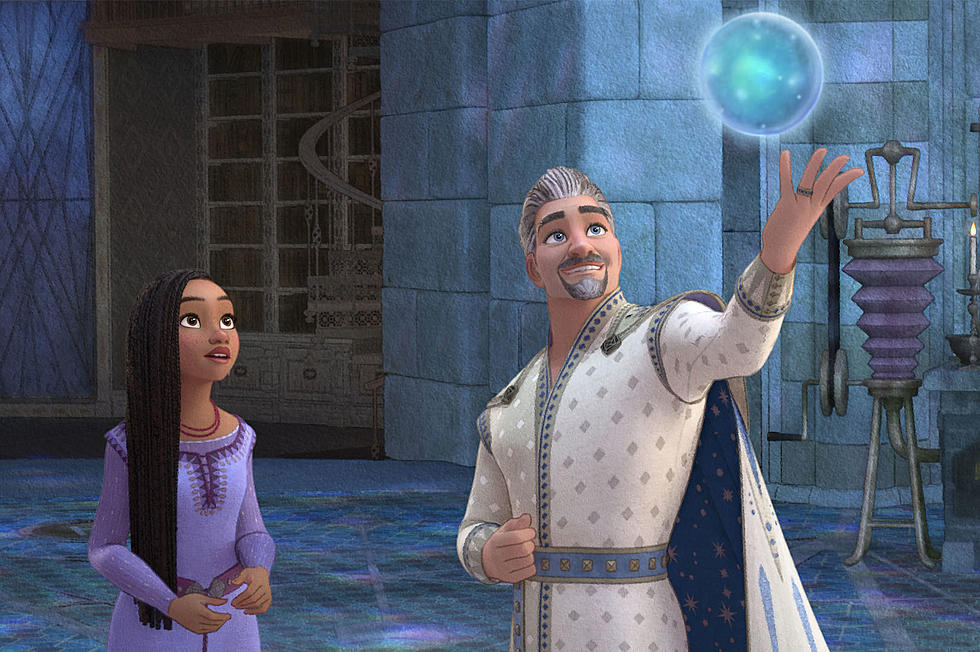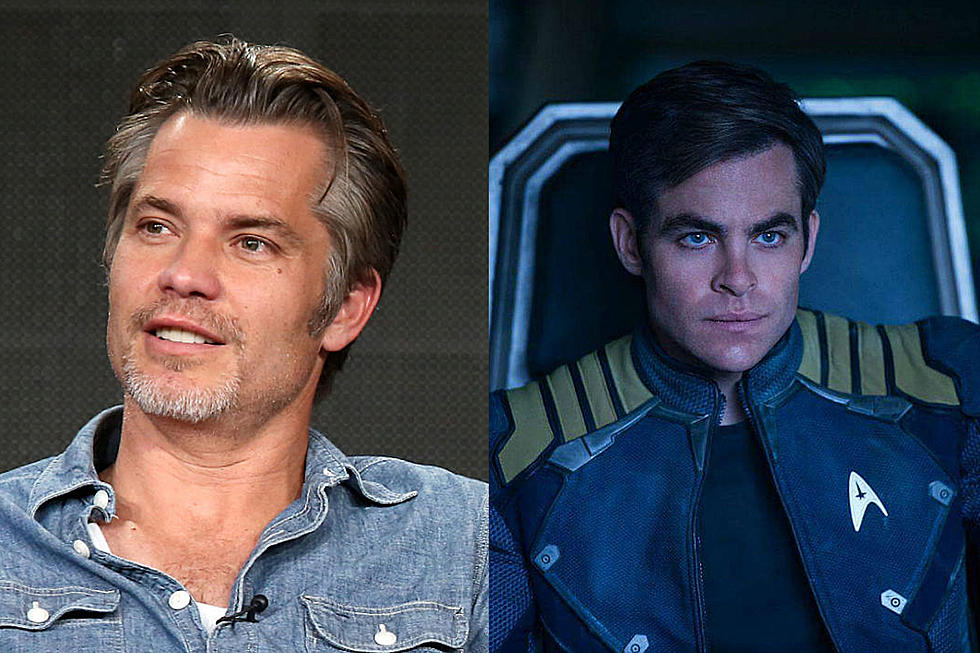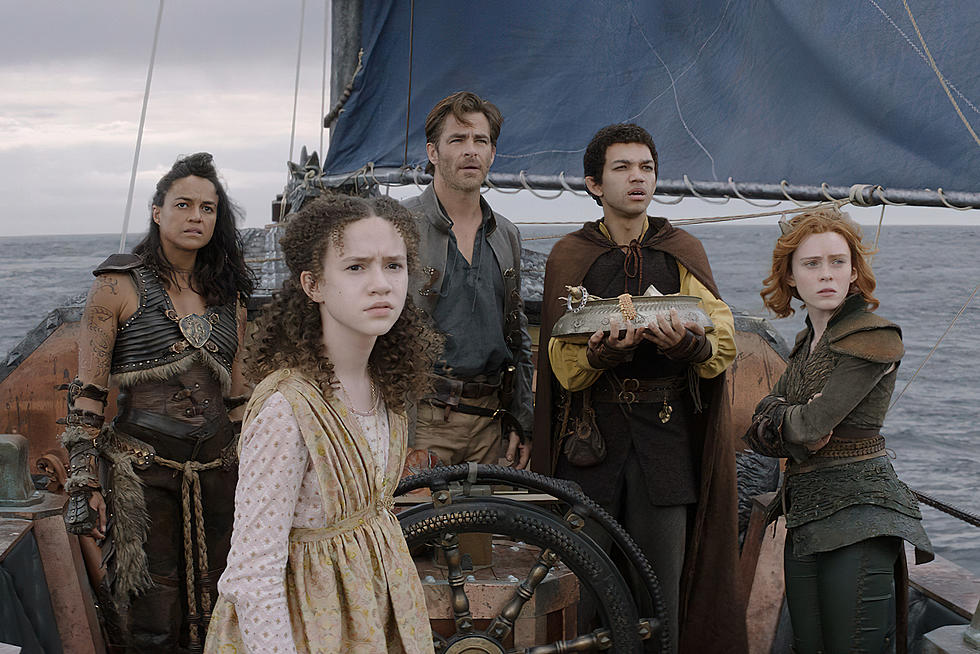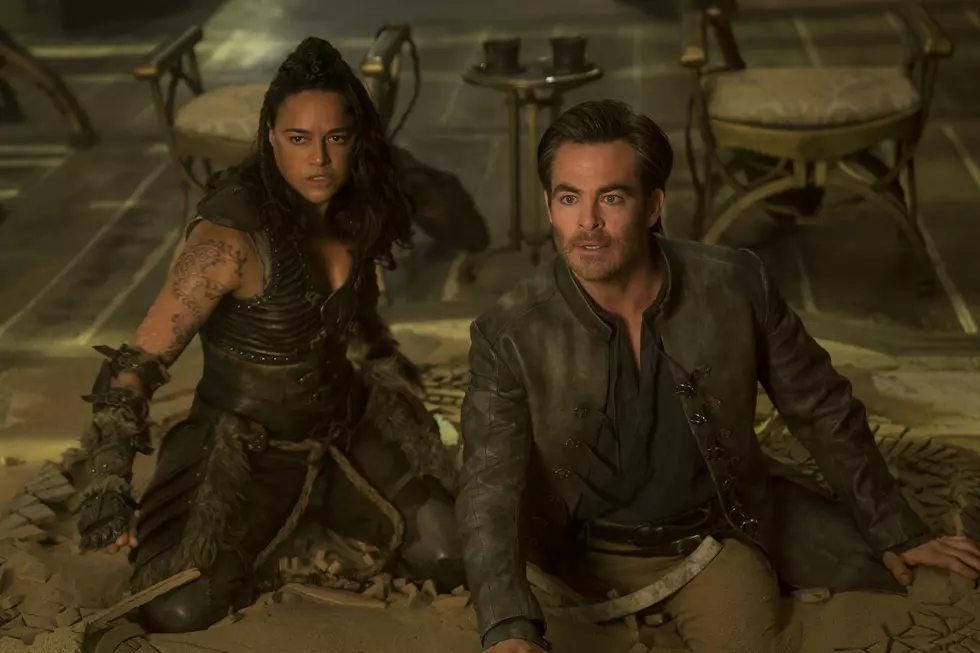
‘People Like Us’ Review
I don't watch many movies like 'People Like Us.' Weepies, they call 'em. (Okay, they called 'em that in 1940.) (Okay, they called 'em that in 1940 in my mind.) Weepies are basically little bits of soap opera – some family struggle which culminates in tears, hugs and a big fat life lesson. Sometimes we get lucky and they explode with insight and good writing (I mean, what's 'Hannah and Her Sisters' if not soap opera?) and break out of their Lifetime Network ghetto.
'People Like Us' doesn't quite do that, but the card up its sleeve is an extremely likable cast of solid actors who photograph really well. Even though everyone on screen is supposed to be at their emotional breaking points, the movie still deals in wish fulfillment to see how beautiful people cope with (and resolve) sexier problems than we'll ever have.
Our lead is Chris Pine, handsome, slick, wheeling and dealing in a vaguely legal job involving bartering goods. Just when his train shipment of boxed tomato soup waves a red flag with the Federal Trade Commission, he learns that his father has died. His girlfriend Olivia Wilde is sympathetic, but he seems more perturbed about going back to Los Angeles for the funeral than anything else.
Turns out the old man was a bigshot record producer in the 70s (gave Elvis Costello his first pair of bad glasses) but wasn't much in the warmth department. His wife (Michelle Pfeiffer) stood by him, though, so she and her estranged son can't even really bond on what a jerk he was. Just as Pine is ready to head back to New York his father's attorney gives him an old leather MacGuffin. In it, money (lots of it), an address and a note to “take care of them.”
These clues lead him to Elizabeth Banks, a hard-working bartender (at The Standard, no less) who is a recovering alcoholic (yeah, poor line of work) and has a precocious wisenheimer kid whose haircut is idiotic enough to make his obnoxious comments seem cute. Pine quickly realizes that Banks is his half-sister, but instead of telling her this the film lays out a complex series of ruses and white lies. In time, she falls for him, or at least welcomes him into her very emotionally fragile life. He delays revealing his identity because she harbors deep resentment to her father's “other family.” Were I feeling kind, I'd call the scenario Preston Sturges-esque, though it's also reminiscent of, say, an arc on 'Days of Our Lives.'
Surprisingly, even though the story beats are wholly predictable and exposition is inelegantly blurted out in AA meetings and phone calls, I found myself not wanting to kill myself while watching the movie. This is mostly due to Pine and Banks and the li'l moppet. They look gorgeous and it's fun to pal around with them, even with all their problems. There's a “driving up the coast” montage that maybe occupies five minutes of screentime but really sells that these are good people who deserve good things. Also: music fans will get a kick at seeing the old man's record collection – it's hard to diss too hard on any movie with both The Clash and Charles Mingus on the soundtrack.
It's funny, because certain aspects of Pine's story arc aren't that dissimilar from some classics of 1970s “New Hollywood.” I'm thinking specifically of 'Five Easy Pieces' and 'Save the Tiger.' The former has a wayward son returning to a family of means, the latter is about a man whose work is about to pull him under who finds solace in an unlikely Los Angeles woman. 'People Like Us' couldn't be more different in tone – it is shot with lots of flash and hardly any grit at all – but it's interesting to speculate on what this movie would look like if the script were to get sent back forty years.
I'd be lying if I said I didn't have a lump in my throat during the big emotional climax, but I wasn't out of the theater five minutes before I shook it off and thought, “wow, I really let that dumb movie get to me.” 'People Like Us' is a perfectly acceptable 'Jerry Maguire'-lite for people who like to put their noses in other people's problems.
'People Like Us' is in theaters now
Jordan Hoffman was the movies editor at Hearst Digital’s UGO for four years and currently contributes to SlashFilm, MTV’s NextMovie and StarTrek.com. He’s made two marginally successful independent movies, is a member of the New York Film Critics Online and was named IFC’s Ultimate Film Fanatic of the NorthEast in 2004. Follow him on Twitter at @JHoffman6.
More From ScreenCrush









